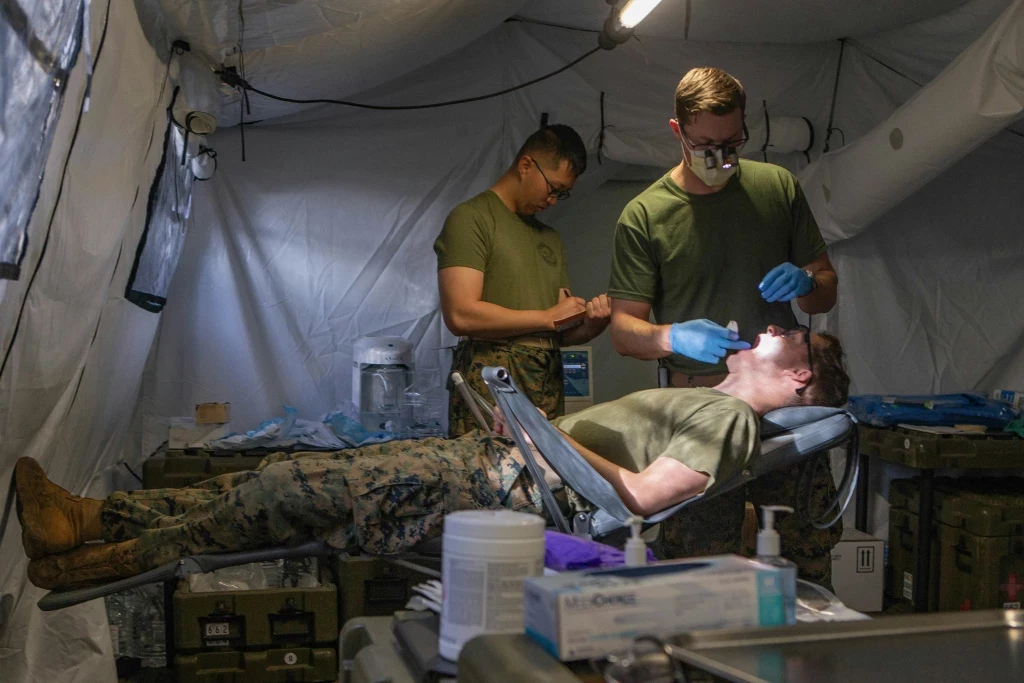Multi-Domain Operations and Defence Capability Development
Add bookmark
The evolving and increasingly challenging strategic environment, highlighted by the resurgence of Great Power rivalry, together with a highly fluid operational environment and technological context, poses a significant challenge to defence planners. Moreover, although the strategic environment arguably calls for increased defence spending, the wider political context and demands mean it is unlikely that the resources available for defence will increase substantially, if at all.
Thus, the requirement for innovation, whether technological or conceptual, that can enhance military capability is essential. In this context, the concept of Multi-Domain Operations (MDO) warrants discussion, in particular, as the UK undertakes an integrated review of its defence, security and foreign policy.
Defining Multi-Domain Operations
Emerging from the US Army’s earlier thinking on Multi-Domain Battle, Multi-Domain Operations are argued as constituting:
“Operations conducted across multiple domains and contested spaces to overcome an adversary’s (or enemy’s) strengths by presenting them with several operational and/or tactical dilemmas through the combined application of calibrated force posture; employment of multi-domain formations; and convergence of capabilities across domains, environments, and functions in time and spaces to achieve operational and tactical objectives”.[1]
Fundamentally, a multi-domain posture is seen as “Dealing with more than one domain at the same time”.
Japan has articulated in its Medium Term Defense Program (FY 2019 - FY 2023), its plans for the Multi-Domain Defense Force, which ‘organically fuses capabilities in all domains including space, cyberspace and electromagnetic spectrum; and is capable of sustained conduct of flexible and strategic activities during all phases from peacetime to armed contingencies’.
Capability development, in this regard, ‘will further promote joint-ness of the Ground, Maritime and Air Self-Defense Forces in all areas and, avoiding stove-piped approach, optimize their organizations and equipment’. In essence, multi-domain operations seek to harness the effectiveness of the individual services operating in their respective domains (that is, air, land, sea, plus space and cyber), the potential of cross-domain effects, and the agility – and with it, ability to outmanoeuvre an adversary (physically and cognitively) – that such a posture may bring.
The UK and MDO
In his annual Christmas lecture to the Royal United Services Institute, the Chief of the Defence Staff, General Sir Nick Carter, in December 2019 referred to the need to “move beyond ‘Jointery’”. Whilst Strategic Command has replaced Joint Forces Command and is tasked with achieving the “transition [from] the industrial age Joint Force to the Information Age’s Integrated Force”, and “multi-domain integration”.
For the UK, building on extant cross-domain capabilities, that is, those forces capable of operating across domain boundaries such as from the maritime into the land and air environments, provides the foundation upon which to develop MDO.
In this context, the Royal Marines and Fleet Air Arm possess domain expertise across the three traditional domains, which can be utilised through, for example, embedding ‘domain experts’ into other units and thus through an “an in-depth understanding of both environments, [are] able to bridge the language and experience barrier and ease the integration of the unit into an unfamiliar environment”.[2]
This would also aid developing compatible command and control processes. The development of a multi-domain approach is principally conceptual, but what would it mean for procurement? A multi-domain perspective would look to ensure environmental compatibility and flexibility, such as the ability to operate in and from the maritime environment.
Moreover, it could spur technical innovation through challenging traditionally defined roles, such as what is the naval contribution to UK air and missile defence? How can the British Army contribute to securing sea control? How do cyber aseets complement kinetic capabilities and vice versa? With resources likely to remain limited, developing enhanced capabilities through conceptual innovation provides a means of responding to the growing plethora of threats to British interests: MDO may provide the foundation for an agile, adaptable strategic approach to the challenges of the coming decades.
[1] US Army Training and Doctrine Command, The US Army in Multi-Domain Operations 2028, TRADOC Pamphlet 525-3-1, 6 December 2018, p. GL-7.
[2] DCDC, ‘Joint Operations – Lessons from the Falklands Campaign’, 20 January 2009, p. 6.































